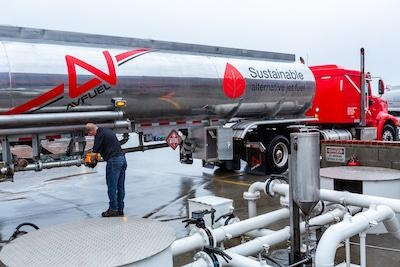Fri, Aug 16, 2024
Advertisement
More News
 Aero-News: Quote of the Day (09.12.25)
Aero-News: Quote of the Day (09.12.25)
"This first FAA certification enables us to address the pilot shortage crisis with modern training solutions. Flight schools need alternatives to aging fleets with 40-year-old desi>[...]
 First-ever Jetson ONE eVTOL Delivery Goes to Oculus Founder
First-ever Jetson ONE eVTOL Delivery Goes to Oculus Founder
Manufacturer Works to Set Up Shop in California Personal aviation company Jetson recently completed the first-ever delivery of its ONE electric vertical takeoff and landing (eVTOL)>[...]
 Hawaiian Airlines, Honolulu CC Start Mx Tech Program
Hawaiian Airlines, Honolulu CC Start Mx Tech Program
Workforce Development Partnership Expands To Meet Demand Hawaiian Airlines and Honolulu Community College announced an expansion of their workforce development program with their l>[...]
 Bristell Receives First FAA Part 23 Certification for its B23 Trainer
Bristell Receives First FAA Part 23 Certification for its B23 Trainer
Manufacturer Wiggles Its Way Into the US Flight Training Market Czech plane maker Bristell was awarded its first FAA Type Certification for the B23 two-seater, assisting its effort>[...]
 Blue Alchemist Successfully Completes Critical Design Review
Blue Alchemist Successfully Completes Critical Design Review
Transforms Lunar Or Martian Regolith Into Materials For Self-Sustainment Blue Origin announced that its Blue Alchemist resource utilization system successfully completed its Critic>[...]
blog comments powered by Disqus





